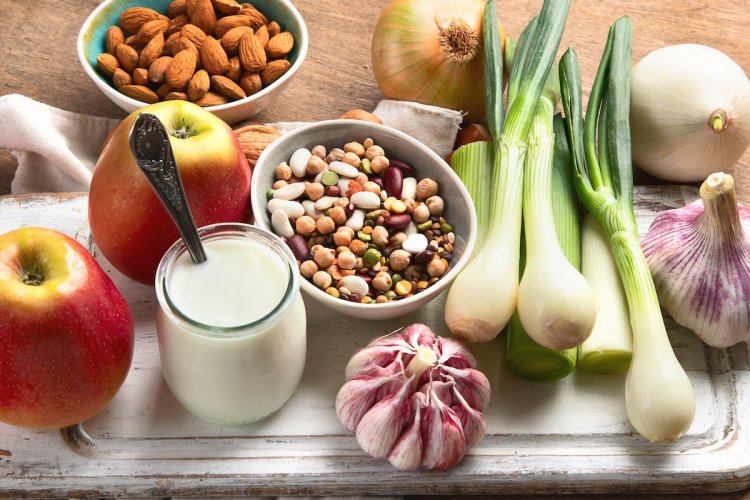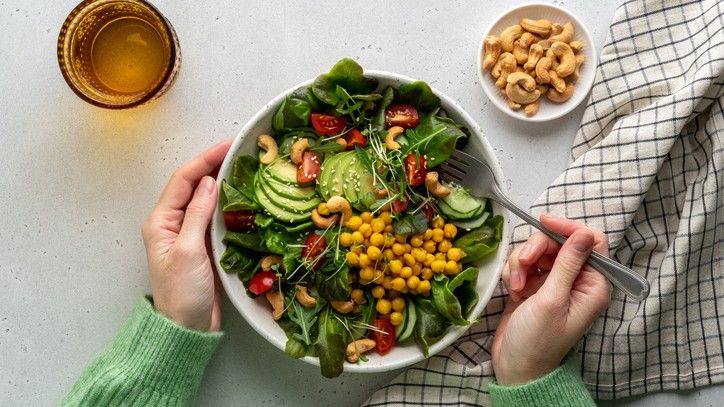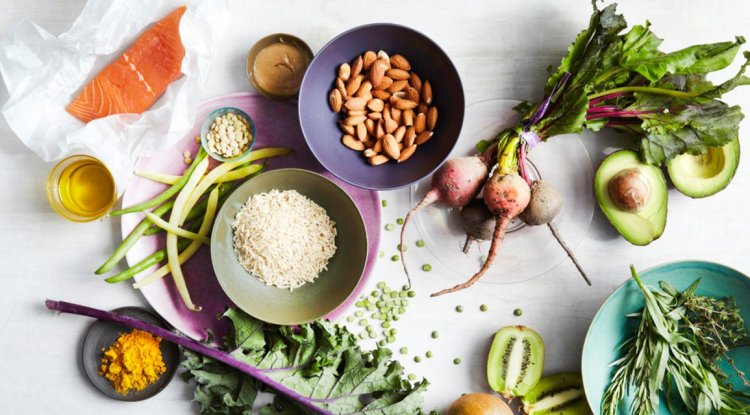The Relationship Between Diet and Microbiota and How It Affects Disease Risk
Food is frequently thought of as fuel. However, new research suggests it is more than that it is a language your body can understand, particularly when it comes to your gut microbiota.

Your digestive tract is home to a wide colony of microscopic squatters, including bacteria, viruses, fungi, and others. It does not only follow along. Your gut microbiota is a living, breathing ecosystem that helps control inflammation, blood sugar, and the risk of chronic illness. It turns out that your diet plays a big role in that discussion.
Our understanding of food as medicine is being altered by a recent study that was published in Nature Medicine. It provides compelling insight into the complex relationship between nutrition, the gut microbiota, and chronic illness.
What Exactly Is the Microbiome?
Consider your gut microbiota as a customized garden that resides primarily in the small and large intestines. Trillions of bacteria, viruses, and other microorganisms make up this inner ecosystem. These microbes' genes, collectively referred to as the microbiome, interact with your own.
Chronic illness can be prevented when this ecosystem is balanced with more beneficial species and fewer disruptive ones. However, heart disease, type 2 diabetes, obesity, and systemic inflammation may result when the weeds take control.
The Study: Real-Time Monitoring of Diet, Microbiome, and Disease Risk
This new study examined more than 1,100 participants as part of the PREDICT 1 experiment, a large-scale endeavor aimed at determining how people react to various cuisines. After extensively examining the participants' microbiomes using metagenomic sequencing, the researchers connected the results with specific dietary practices, blood pressure, cholesterol, blood sugar, inflammation indicators, and individual health metrics like body fat, BMI, and blood pressure.
The inquiry was straightforward yet impactful: Does our diet alter our microbiome, and if so, how does it affect our risk of disease?
The solution? Definitely yes.
Your microbiome is shaped by your diet, and your health is shaped by your microbiome.
The researchers discovered the following:

Sugary desserts, red meat, and processed snacks are thought to promote gut species linked to elevated blood sugar, LDL cholesterol, and inflammation in less-healthy diets. All three are warning signs for metabolic problems, stroke, and cardiovascular disease.
Conversely, those with more varied, advantageous gut microorganisms consumed less processed, high-fiber foods such as leafy greens, broccoli, legumes, nuts, and whole grains. Better metabolic health and fewer illness indicators were associated with this variety.
A healthier microbiota was also promoted by the inclusion of some animal foods, such as fish and eggs, particularly when they were substituted for processed meats or dairy desserts.
Walnuts, flaxseeds, chia, salmon, and certain oils are sources of polyunsaturated fats, which have been associated with gut-friendly bacteria that appear to lower the risk of chronic diseases.
To put it another way, your gut microbiota's composition not only reacts to your diet, but also reflects, amplifies, and can tilt the scales in favor of health or illness.
The Argument in Favor of a Plant-Based, Whole-Food Diet

Eliminating the "bad" stuff is not the main lesson. It is about giving your gut the fiber-rich, unprocessed foods it needs to flourish and support the growth of various, disease-fighting microorganisms.
The following are the ideal patterns for a thriving microbiome:
Plant-based, whole-food diets (such as vegan or ovo-vegetarian)
Pescatarian diets, in which fish is the only meat consumed
Diets heavy in processed foods, low in added sugars, and high in polyunsaturated fats
It is interesting to note that the digestive advantages of entire plants were not linked to processed plant-based diets like store-bought veggie burgers, sugary drinks, and imitation meats. What matters is not only what you consume, but also how processed it is.
A Change in Perspective: The Microbiome as a Health Communicator

There is not a magic bullet in this study. Instead, it presents an intricate and intriguing picture of how your gut microbes react to the food you eat on a daily, regular, and predictable basis. They then have an impact on the most important systems in your body.
This implies that each bite you consume has the potential to either strengthen or weaken your body's defenses.
Actions You Can Take Right Now to Help Your Microbiome:
Eat as much whole plant foods as possible, such as grains, legumes, nuts, seeds, and greens.
Reduce the amount of highly processed goods, even those that are "plant-based."
Consider trends rather than individual elements. What is your weekly menu?
Above all, eat with intention and curiosity. Your microbiota is paying attention.
What's Your Reaction?




















